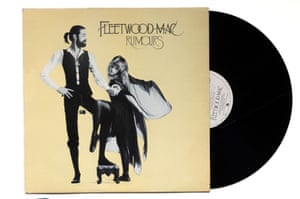
The angst-laden ballads of Lewis Capaldi were the biggest soundtrack of pandemic Britain, industry figures for 2020 show, as streaming of music shot up by more than 20% in lockdown.
Streaming accounted for more than 80% of overall music consumption in the UK last year, when people listened to 139bn audio streams, up from 114bn in 2019. CD sales fell by almost a third year on year, although the fringe market in vinyl and even audio cassettes continued to rise.
UK artists led by Capaldi, Harry Styles and Dua Lipa accounted for eight of the top 10 albums. Nearly 200 artists were streamed more than 100m times, with the BPI hailing a new wave of diverse talent fuelling music industry growth, including acts such as Aitch, AJ Tracey, Headie One, J Hus and KSI.
The 24-year-old Scottish singer-songwriter’s Divinely Uninspired to a Hellish Extent was the most streamed album for a second successive year in the UK, with tracks whose lyrics appositely spoke of of “day bleed[ing] into nightfall” in isolation. Capaldi also recorded two of the top 10 selling singles, a chart topped by The Weeknd’s Blinding Lights.
According to record labels’ association the BPI, consumption was up for a sixth successive year, with the equivalent of 155m albums sold, up 8.2% on last year. The figures have been recalibrated to include an element of video streaming weighted alongside other paid audio streams.
The increase in listening came as the live sector was all but wiped out by lockdown rules to combat the pandemic – and in spite of a dip in demand at the start of the first lockdown in spring.
The BPI said that streaming was fuelled by labels’ increasing investment in A&R, or artists and repertoire, the talent scouting and artistic development side of the industry. A&R spending rose above £250m in 2019, bringing in more diverse talent from rap, hip-hop, dance and other genres.
The BPI’s chief executive, Geoff Taylor, said: “A new wave of British talent is capitalising on the immediacy of streaming to achieve fantastic success, measured in the hundreds of millions, even billions of streams. Record labels are investing heavily in new artists to secure the future of British music, boosting the UK’s exports and soft power.”
He added: “The performance of recorded music in 2020 was remarkable, and reminds us how important music is to our country, even when our lives are disrupted.”
The top 10 streaming artists in 2020 each achieved more than half a billion streams in the UK alone, while 8,000 different acts now total more than 1m streams annually.
CD sales slumped a further 31% to 16m units in the UK, although the BPI said the format was resilient and still played a key role. Drew Hill, the managing director of distributor Proper Music, said they remained a “kingmaker”, with most number one albums still getting there by having the most physical sales.
Sales of vinyl records continued their resurrection as a premium and collectors’ format, increasing for the 13th consecutive year, by 11.5% to 4.8m copies purchased. Top sellers were the reissued albums of happier decades: Fleetwood Mac’s Rumours, followed by Oasis and Amy Winehouse.
An even unlikelier, if very niche, revival has been the audio cassette, whose UK sales almost doubled to 157,000 copies, led by Lady Gaga’s Chromatica.
Hill added: “As we celebrate this streaming boom, it’s important we also remember the ongoing fan demand for something tangible and recognise that streaming and physical music coexist quite happily.”
Meanwhile, Taylor said it was critical that the government supported venues and festivals during the continued Covid restrictions until the sector could re-emerged, with live revenues being a significant part of many artists’ income. Despite the growth in streaming, he said: “Any satisfaction we can take is tempered by the devastating impact of the pandemic on live music. We renew our calls on government to support our culturally important venues, nightclubs and festivals until they can safely reopen.”
Source: Read Full Article

